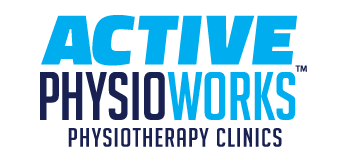Core Strengthening: What’s the big deal?
Sep 25, 2014
Individuals experiencing pain in the back, neck, or upper/lower extremity often find it perplexing when they are told they need to strengthen their core in order to fix the problem. So what’s the big deal with the core?
A common myth must first be dispelled: having a 6 pack does not equate to having a strong core. The core consists of many muscles on the front, side and back of the trunk, and although the “6 pack muscle” (rectus abdominis) is a part of this group, it is only a small part of the true core.

The major core muscles by location include:
-FRONT/SIDES: 3 layers of abdominal muscles (rectus abdominis, internal/exernal obliques, and transversus abdominis)
-TOP: diaphragm
-BOTTOM: pelvic floor
-BACK: erector spinae and multifidus
Together these muscles have 2 major responsibilities: stabilizing the spine and transferring forces from the extremities through the core. If core strength is insufficient, other muscles in our body outside of the core are forced to compensate for these deficiencies. This results in some muscles becoming tight/overactive, others becoming weak/underactive, and often culminates with some sort of pain and/or injury. Common problems such as tight hamstrings or hip flexors are often attributable to a deficiency or imbalance core muscles. Likewise, core weakness or imbalance is almost certainly a primary contributor to low back pain that has no clear pathological cause on X-ray or MRI (which is the case in ~85% of episodes of low back pain).
What can a strong core do for you?
-Support the spine. A weak core is less efficient at transferring forces through the body. The forces that would normally be carried through the core by our muscles are instead loaded onto the discs and bony joints of the spine.
-Improve athletic performance. A strong core improves balance, optimizes muscle function, and prevents development of muscle imbalances.
-Improve posture. A strong core makes it much easier and more natural to sit up straight and avoid slouching. Your low back, neck and shoulders benefit immensely from the decreased load placed on them by optimal sitting and standing posture.
-Reduce chance of injury. Poor core strength causes muscles outside of the core compensate for its weakness. Consequently, these muscles at increased risk for being strained or “pulled” because of the increased loads they endure.
Come in for a visit with one of our physiotherapists at any of the Active Physio Works clinics for a thorough assessment of your ache, pain, or injury and see how a core-strengthening program can benefit you!
Please add your bio info through your member profile page, or through your dashboard.

